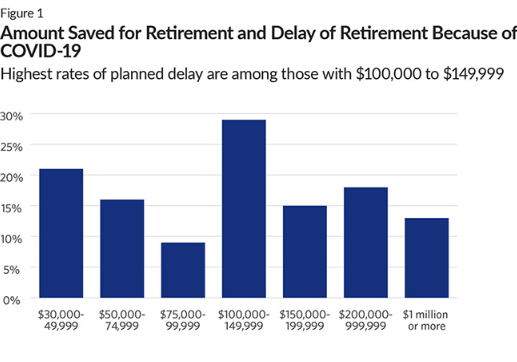This article is part of a series on personal finance during the coronavirus pandemic. Please check out the Coronavirus and Your Finances Series (link will open in a new window).
I love my last-minute lifestyle because I just sort of don’t have plans, and things kind of happen. Plans make me annoyed a little bit, personally. I’m not the most prompt, on-time person.
–Maxwell
There are many of you out there who probably decided, as you were watching the ball drop on New Year’s and listening to Ryan Secrest try to say something profound, that you were going to make this your last year of work before truly joining the FIRE (financial independence, retire early) movement as opposed to watching from the outside.
Then, the S&P 500 lost 34% of its value from February 19 to March 23, 2020. Corporate bonds were shelled, too, until word of a government bailout boosted them. Corporate bonds, as of market close on March 25, 2020, were down around 5.1% on the year.
Suddenly, relative to the amount of time it took to work to get to the point where you felt comfortable that you were going to pull the plug on December 31, 2020, you’re reconsidering your decision.
If you’re like us, in your mid-40s (let’s assume 45), and you had the asset allocation I recommend, then you’re 65% in equities and 35% in fixed income. Using the returns below, your total return so far in 2020 would be a loss of 23.9%.
If you were planning on a 40 year retirement, then your safe withdrawal rate is 3.4%, meaning that you would need 29.4 times your annual expenses as a target number.
If you suffered a 23.9% drop in your assets, then you would have needed to have 38.6 times your annual expenses at the beginning of the year.
Most people don’t overshoot by over 30% of what they need and then decide to work one more year unless they’re suffering from the One More Year Syndrome.
Therefore, you’re probably now at around 75% of what you need in order to retire.
As we saw in “Are We Too Conservative in Our Investments When We Are Young,” the impact of whatever you contribute towards your retirement in your last year of work is microscopic compared to the impact of the returns on your investments and the accumulation over time of your investments.
So, thinking that you’ll just save one more year and make up the difference isn’t feasible.
Simply put, you need to think about your FIRE plan as if you were 75% of the way towards your goal.
Suddenly, you’re going to feel like the finish line seems far, far away.
There are a bunch of unsurprising responses to having an expected reward suddenly taken away. Mauricio Papini and Thomas Dudley of Texas Christian University researched the outcomes of what they termed “Surprising Reward Omissions(SROs).”
There are both physiological and behavioral responses to SROs:
- Physiological Responses
- Corticosteriod release. This means that your body releases a type of chemical called a corticosteriod that increases heart rate, blood pressure, and alertness. However, as we saw in “Do You REALLY Know How You Would React if the Stock Market Dropped by 20% (written in 2014…prescient?), long-term release of cortisol in your system can have negative impacts on your health due to increased stress of your nervous system.
- Immune system weakness. Because of the stress on your system, your immune system is less able to respond to external infection threats. That’s not exactly what you want in a highly contagious environment. Maintain physical distance from others while you adjust to your new reality, at least while COVID-19 is prevalent.
- Autonomic responses. This is a fancy term for higher heart rate, higher blood pressure, and decreased skin elasticity. These three seem pretty related, don’t they.
- Odor release. Shower more. You may stink.
- Behavioral Responses
- Vocalization. Have you screamed or groaned or grunted out loud when you figured out that the goal posts just moved on you? This is the outcome of a SRO.
- Increased motor activity. All of your nervous tics probably have come to the fore. You probably pace a lot more. You are tapping your feet a lot.
- Aggressive behavior. Since you perceive that you’ve just lost your reward, you’re more protective of what you have. You’ll focus more on your in-group biases than you normally would.
- Drinking. People look to drown their sorrows. Research shows that alcohol consumption goes up in a recession, and you’re facing your own personal recession in the midst of the COVID-19 generated economic recession.
How Should You Respond to the Sudden Perceived Loss of Your Ability to Retire Early Because of the Coronavirus Pandemic?

While the outcome is not as bad as for those who have lost children, research may shed some light on the analogous coping mechanisms.
The University of Denver’s Daniel McIntosh, along with the University of California-Irvine’s Roxane Cohen Silver and SUNY-Stony Brook’s Camille Wortman studied how religion helped parents who had just lost a child.
While you may or may not be religious, there are takeaways that apply too all who have suffered a loss:
- The perception of social support helps. If you feel like you have people around you who care and who can help you work through the grieving, your recovery period will be shorter. However, as we saw in “Separation Anxiety in Early Retirement,” not everyone is going to be sympathetic to your plight because they’re envious of the progress that you’ve made.
- Cognitive processing of the loss. A friend of mine recently said about her stress during the COVID-19 pandemic that she was glad that she had work to go to in order to avoid obsessing about the bad side of it. While this approach may work to help you avoid what another friend calls “building a wall of worry about something that hasn’t happened yet” (if you haven’t contracted the virus), it does not help you to deal with grief. The best way to deal with grief is to, as the researchers state, “actively…process the information.”
- Finding meaning. In Christianity, the meaning of death is perceived to be a passage to Heaven. In your situation, you need to find some other meaning, some new purpose for what to do in the interim time period between now and whenever you truly reach your safe retirement point.
In addition to what the academic researchers say, I have a couple more suggestions:
- Don’t panic. Yes, easier said than done. The time to sell was probably two months ago (we’ll see how true that statement is in, say, December, 2020). Gains in the market were the bigger lever for getting you where you were, and they will be now, unless you can find a job that suddenly pays you a ton of money, which leads to…
- If you’ve told your employer about your pending retirement, start to walk it back. My wife and I both gave at least a year’s notice. If you did the same, now is the time to start talking about not retiring at the end of the year. It’s likely that your employer hasn’t even really begun planning for your absence, so there won’t need to be major changes.
- Remember, you’re still not that far away from your goal. Even if you’re now 75% of the way to the goal, you’re still 75% of the way to your goal! You’ve come a long way, baby! You may have to delay another year or two, but you’ll get there!
It can be tough realizing that what seemed so close is now a little further away. You’ll need to process and adjust to your new reality. However, all is not lost; it’s just postponed. Work through the grief and then readjust your plan. You’ll get there!
Has anyone had to postpone their early retirement plans because of the novel coronavirus pandemic? Let’s talk about it in the comments below.
Author Profile
- John Davis is a nationally recognized expert on credit reporting, credit scoring, and identity theft. He has written four books about his expertise in the field and has been featured extensively in numerous media outlets such as The Wall Street Journal, The Washington Post, CNN, CBS News, CNBC, Fox Business, and many more. With over 20 years of experience helping consumers understand their credit and identity protection rights, John is passionate about empowering people to take control of their finances. He works with financial institutions to develop consumer-friendly policies that promote financial literacy and responsible borrowing habits.
Latest entries
 Low Income GrantsSeptember 25, 2023How to Get a Free Government Phone: A Step-by-Step Guide
Low Income GrantsSeptember 25, 2023How to Get a Free Government Phone: A Step-by-Step Guide Low Income GrantsSeptember 25, 2023Dental Charities That Help With Dental Costs
Low Income GrantsSeptember 25, 2023Dental Charities That Help With Dental Costs Low Income GrantsSeptember 25, 2023Low-Cost Hearing Aids for Seniors: A Comprehensive Guide
Low Income GrantsSeptember 25, 2023Low-Cost Hearing Aids for Seniors: A Comprehensive Guide Low Income GrantsSeptember 25, 2023Second Chance Apartments that Accept Evictions: A Comprehensive Guide
Low Income GrantsSeptember 25, 2023Second Chance Apartments that Accept Evictions: A Comprehensive Guide

